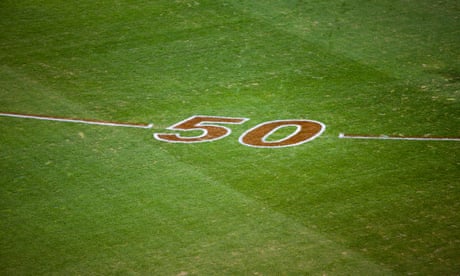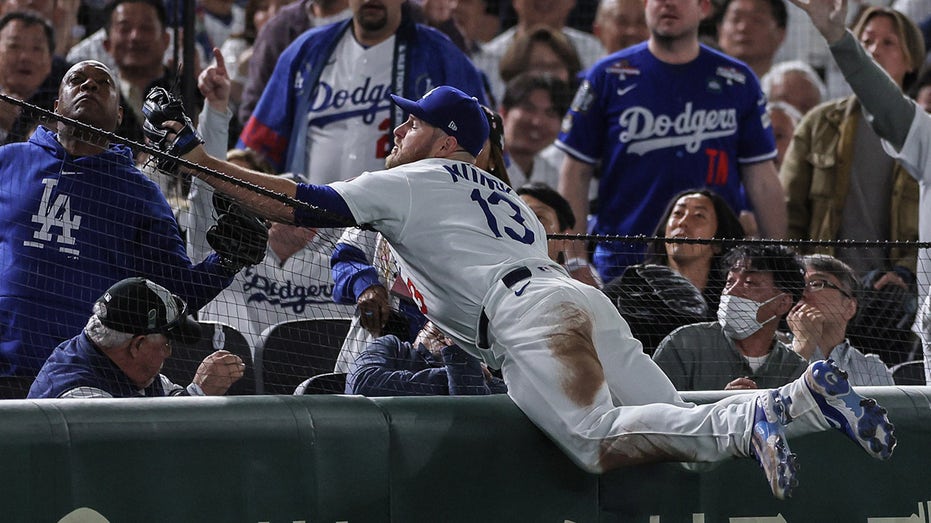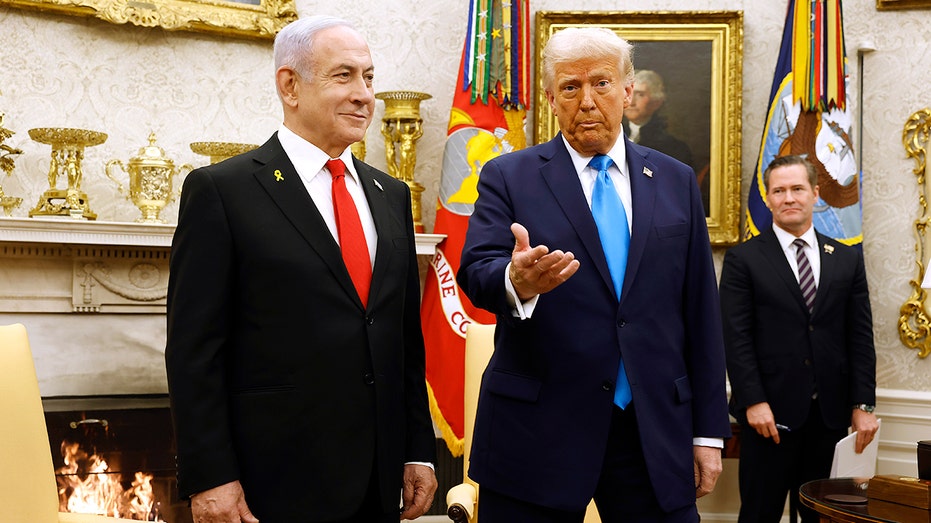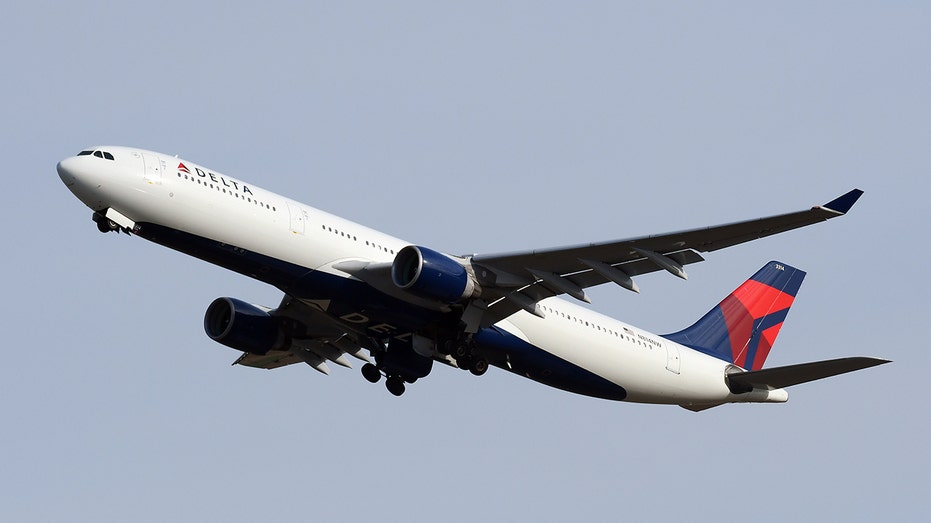- by foxnews
- 20 Mar 2025
‘I can’t trust anybody in this system’: AFL review into concussion study leaves players and experts disappointed
‘I can’t trust anybody in this system’: AFL review into concussion study leaves players and experts disappointed
- by theguardian
- 30 Oct 2022
- in news

For Katherine Tuck, the widow of star AFL player Shane, the wait for answers on her husband's death has been interminable.
Tuck took his own life in 2020 following his 173-game career with the Richmond football club.
After his death, he was found to have had a severe case of chronic traumatic encephalopathy (CTE), the neurodegenerative disease associated with concussion and the repeated heavy impacts of playing contact sport. Tuck's was the worst case of CTE the Australian Sports Brain Bank had ever seen.
But the coronial inquest into his death at age 38 was delayed until July 2023, so that the findings of a review by the AFL into Associate Prof Paul McCrory, one of its primary concussion experts, could be completed and considered by the coroner.
The findings of that review were handed down this week. And Tuck has been left "bitterly disappointed".
"This report does nothing to allay her concerns," her lawyer, Greg Griffin, told Guardian Australia.
"It was the AFL itself that determined the scope of the matters to be reported upon and it is, despite the undoubted independence of the authors, another version of the AFL playbook, which is to mark its own homework."
The AFL first announced in March that it would commission a comprehensive, independent review of McCrory's work for the league, after multiple allegations of plagiarism were made against the globally influential neurologist.
McCrory was, until those allegations emerged, the chair of the international Concussion in Sport Group (CISG), a group of researchers and scientists, often with links to major sporting codes, that creates guidance on the management of sports-related concussion and head injury in the form of published consensus statements on concussion in sport.
McCrory had been particularly involved with the AFL as a key concussion expert since 2011. He treated players suffering from brain injury, advised on concussion protocols, and was responsible for heading up a multimillion-dollar study launched in 2014 and conducted in collaboration with the world-renowned Florey Institute of Neuroscience and Mental Health and the AFL Players' Association (AFLPA). The study promised to make "groundbreaking" findings into the long-term effects of concussion on former players.
But the 260-page AFL review found the study, called the Past Player Project, was never finished, was underfunded and resulted in no published research.
It found there was widespread "confusion" among former players who took part and disclosed personal medical information in the hopes they would get answers about their declining health. On Tuesday, the AFL apologised to those who participated, saying the players had been "let down".
Former ruckman John Barnes was one of those players. He experienced a dozen diagnosed concussions and countless other blows to the head during his 202-game career. He gave up his time for the Past Player Project in 2014, and to the review panel interrogating it this year.
"I don't trust anyone involved with it any more," Barnes said. "I can't trust anybody in this system."
In the interim years, McCrory had been making public claims about the past player study that "overstate the actual research that was undertaken" and "ought not to have been made", the review found.
The review cited an instance from April 2016, where McCrory made a public presentation at the Florey Institute, where he has a lab, about his progress on the study. He said "about 600 retired footballers" had been "screened", and "so far, 30% of players are worried about problems".
He told the conference that was "not surprising [since] we're dealing with 50- and 60-year-old people". "They've got worries for all sorts of reasons. Of all that population that we've screened so far, we've found one with Alzheimer's disease. And that's all."
The review found that 550 former players had responded to an initial online survey, and were told they would be sent for clinical assistance if their symptoms were severe enough. But the review also found that many players who expected to be referred were not. Barnes was not referred for medical assistance, despite reporting devastating epilepsy and cognitive decline as part of the survey.
"In our view the project was underfunded and under-resourced from the outset," the reviewers found. "It suffered from a lack of stewardship and coordination.
"Many participants had disappointed expectations of medical advice and follow-ups from tests that were for research rather than clinical purposes. We understand that some retired players requested copies of their research scans and imaging reports. We have not sighted any instances of reports being provided to those individuals."
The AFL never insisted on a formal and accountable relationship with McCrory, its key concussion adviser from 2011 until 2021, the review found. While the reviewers did not find any examples of conduct that constituted impropriety, they said despite that the "informality of the arrangement and lack of structure and sophistication in reporting lines created the potential for impropriety and detracted from the levels of accountability and transparency, that could be expected of an entity of the AFL's size and public profile".
Barnes said he "can't trust anybody" involved with the review. He told Guardian Australia he wants every retired AFL player invited for an interview about the health impacts of being concussed during their career. He has called for the AFL to establish a medical fund to treat the ongoing health issues of retired players, and said he wants to see an independent player union established, outside the AFLPA.
Only then would Barnes consider accepting the AFL's apology.
AFL veteran Shaun Smith, who in 2020 received a landmark $1.4m insurance payout for concussions he suffered while playing, said he believes that a historic lack of action on concussion by the AFL has left "many guys who are seriously broken".
Smith said he could not accept the AFL's apology in the wake of the McCrory review.
"I find the AFL very reactive, always defending themselves as opposed to being the ones to first recognise the issues they have."
At the centre of the AFL's past player study was the link between concussion and CTE - and, by implication, CTE's relationship to playing Australian rules football. CTE has been increasingly connected to contact sports and has been found in numerous AFL players, but can only be definitively diagnosed by autopsy.
With McCrory as its adviser, the AFL was under increasing pressure to recognise the risk of CTE on players and to act to prevent it by better protecting players from concussion.
McCrory, however, has been accused of downplaying the risks of CTE - a particular concern of many researchers given his influential position as chair of the CISG.
The consensus statements the CISG produced every four years - four of which McCrory was the lead author - also frequently downplayed the relationship between contact sports and the condition, with the most recent stating "a cause-and-effect relationship has not yet been demonstrated between CTE and sports-related concussions or exposure to contact sports".
When allegations first emerged that McCrory had plagiarised on multiple occasions, many questioned the extent to which any plagiarised material might have contributed to his reputation as a concussion expert. Many of the allegedly plagiarised articles had appeared in the prestigious British Journal of Sports Medicine (BJSM), of which McCrory was editor-in-chief between 2001 and 2008.
In October, the BJSM and its publisher, the BMJ, said it had found "a pattern of publication misconduct on the part of McCrory", and retracted nine articles and placed "notices of concern" over 74 more. The journal's editors said their trust in McCrory's work had been "broken". McCrory has so far responded only to the initial allegations, saying his failure to attribute the work of Prof Steve Haake was an error and "not deliberate or intentional".
The AFL review panel was asked to investigate admitted and alleged plagiarism by McCrory and to assess the extent to which it may have materially prejudiced his other work.
The AFL review excluded from its scope any instances of self-plagiarism, despite them making up a large number of the plagiarism allegations. With its narrowed scope, only considering selected instances of plagiarism of other authors' work, it found that while McCrory had plagiarised on occasion, these instances "[did] not affect or taint the work that Associate Professor McCrory had undertaken for the AFL, in particular the AFL's guidelines on concussion, in large part because they do not involve the falsification or fabrication of relevant research".
"We consider the evidence does not support a finding that any plagiarism materially contributed to or enhanced A/Prof McCrory's reputation as a concussion expert," the review panel said.
But for some in the scientific community, this is not good enough.
Neurophysiologist and Associate Prof Alan Pearce, who has previously claimed McCrory and the AFL hindered his own research into concussion and CTE in players, said while plagiarising his own work may not have affected concussion data and findings, "McCrory was held up as the concussion world expert."
"When you're elevated to such an esteemed position, then you should be working to that level of expectation," Pearce said. "We expect our leaders to act and perform and do things in a certain way."
The chief executive of the Concussion Legacy Foundation and an American neuroscientist, Dr Chris Nowinski, also took issue with this finding, telling Guardian Australia that he vividly remembered debating with another senior academic and neurologist the position McCrory had put forward in his 2001 editorial on another concussion-related condition, second-impact syndrome.
"McCrory's reputation was built upon his prolific publishing," Nowinski said. "The fact that a journal allowed him to write so many editorials on aspects of concussion allowed him to appear to be an expert.
"It is more than possible he was given his influential position as first author of the consensus statements because he was considered a prolific writer. As first author, he would then influence who else is considered an author and in what order they are listed. He would have final say over the consensus statements. To now learn a man of such weak ethics, who copy-pasted his way to a reputation as an expert, has had so much control over global policy, not only on concussion but CTE, is infuriating.
"We can't get the time back we've lost. We cannot retract the poisonous ideas about CTE he's injected into the minds of researchers who looked up to him."
The Florey Institute said in response to the findings: "We have been concerned by the allegations of plagiarism and other issues raised with respect to Dr Paul McCrory. Our assessment of these matters is ongoing and remains confidential. We will carefully review the 260-page report in full before providing any response to its findings."
McCrory has not responded to numerous requests for comment from Guardian Australia, though he issued a statement to the ABC this week saying he is relieved the report is finalised and believes it speaks for itself.
- by foxnews
- descember 09, 2016
Man allegedly attacks passenger on Delta flight from Atlanta to LA: 'Zero tolerance for unruly behavior'
The FAA is investigating an incident after a passenger allegedly attacked a number of people on a Delta Air Lines flight from Atlanta to Los Angeles on Monday.
read more


